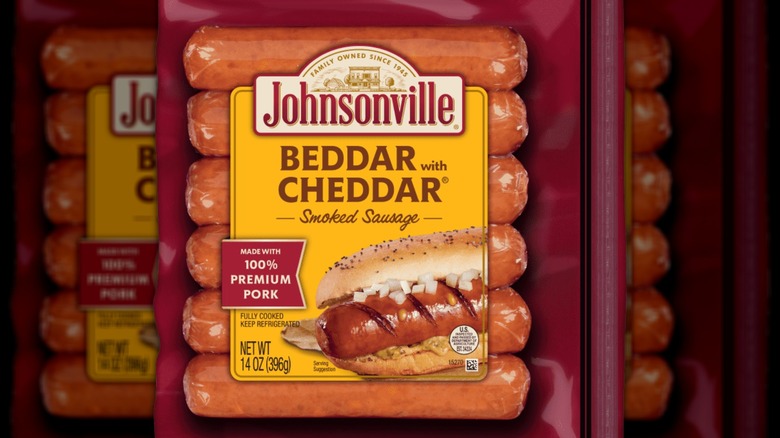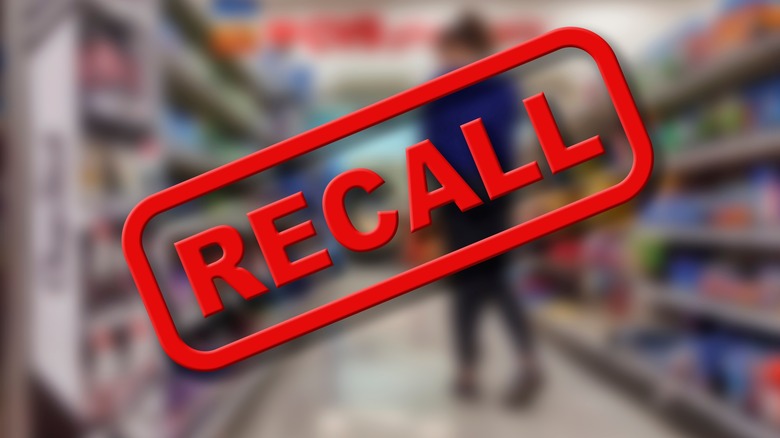Johnsonville Sausages Are Being Recalled Over Plastic Contamination
Before you fire up the grill for your next blazing barbecue and start prepping those delectable items for some char-grilled action, you need to check your sausages. BBQ bigwigs, Johnsonville, has placed a recall on one particular product. The sausages in question are from its line of "Beddar with Cheddar" smoked pork links that were made on January 26, 2023, with the best-before date of July 11, 2023, according to a release by the Food Safety News. The recall comes after a consumer reported that they found thin strands of black plastic fibers. This is obviously a great deal of concern as these 14-ounce packages have already been delivered to food outlets across Colorado, Iowa, Kansas, Missouri, Nebraska, North Dakota, Oklahoma, and Texas.
It is the hope of the popular sausage brand, Johnsonville LLC, that the 21 tons of sausages — which can be further identified by the printed "EST. 34224" number found in the United States Department of Agriculture (USDA) mark on the packages — can be recovered and dealt with appropriately so that no consumers are at risk from the tiny plastic contamination. If you have a package of these recalled sausages you are urged to either throw them out or return them to the origin of where they were bought. For any other questions, you can get a hold of the company by calling the Johnsonville, LLC Consumer Relations Coordinator at 888-556-2728 or at anachtweyfritsch@johnsonville.com.
What happens to the food after it has been recalled?
When a food product has been recalled by a company or manufacturer, there are plenty of steps taken to ensure that these tainted goods are not consumed by the consumer. According to the Food Safety and Inspection Service of the USDA, products can be recalled if they are thought to be "adulterated or misbranded." In most cases of recalled food items, an investigation will take place to determine how the food was contaminated as well as gather any and all information about the problem at hand. From there, a recall committee will determine whether an official recall needs to move forward and whether it is a Class I, Class II, or Class III recall. This determines whether the health hazard from the product poses reasonable, remote, or no health concerns if ingested by the consumer.
You may think that once the recall has occurred and the products have been rounded up they would just be incinerated or tossed in a special landfill, however, that is not always the case. In some instances where food in manufacturing or distribution centers has tested positive for E.coli, for example, there is a market for these tainted meats where they are further cooked until safety measures have been met in accordance with the USDA and then resold to consumers in the form of pet food, frozen food items at the grocery store, and even in your favorite fast food chains, as per BuzzFeed.

